
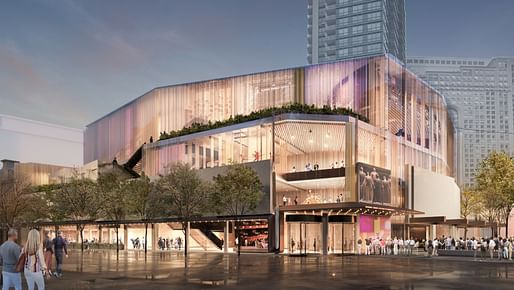
A team led by Hariri Pontarini Architects (HPA) has been announced as winners of an international competition to upgrade and reimagine Toronto’s St. Lawrence Centre for the Arts. The winning scheme, designed by HPA, LMN Architects, Tawaw Architecture Collective, Smoke Architecture, and SLA, was chosen from a shortlist of five teams.
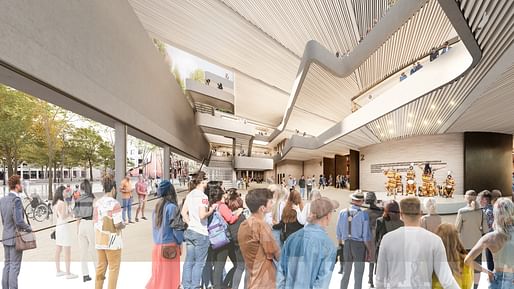
The winning scheme, titled Transparence, seeks to create a “bold connection with [the center’s] historic neighborhood and establish a new cultural hub in the heart of the city.” The Brutalist form and materials of the existing center will be preserved, while a major reconfiguration of the interior will include rotating the main theater 90 degrees to address a new public plaza.

The design process behind the scheme was informed by Indigenous design elements, including the role of Wampum belts as an expression of collective agreement and celebration. “We took the symbolic and figurative quality of the belt, which brings together diverse groups, to create one long, luminous line from end to end, gathering and unifying the complex in a single move envisioned as an embrace of culture and connection to community,” explained HPA founder Siamak Hariri.
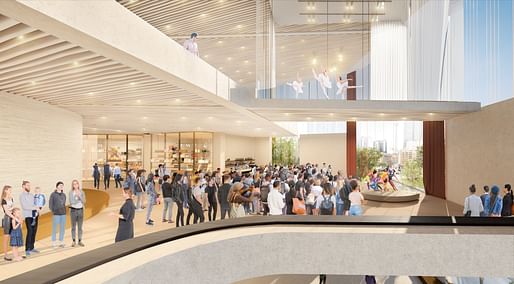
“Our ancestors planned for a world made more resilient by working equitably with each other and with all life systems,” said Smoke Architecture principal Eladia Smoke and Tawaw Architecture Collective principal Wanda Dalla Costa in a joint statement. “In this place of transformation and imagination, Indigenous design perspectives will help that world emerge.”
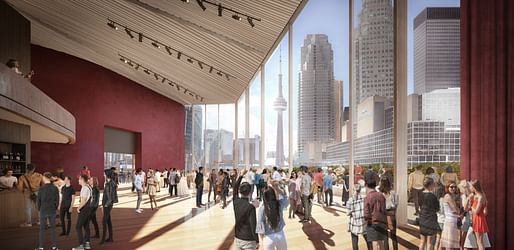
Elsewhere, the proposal sees a high-performance transparent facade wrapping the structure, while the interior lobby and public amenities have been arranged in an L-shaped plan. Above, the second and third floors of the building will feature creative spaces including studios, rehearsal rooms, and informal performance areas. Throughout the scheme, the team has specified wood-lined interiors to “radiate a warmth that reflects the idea of openness and accessibility as one continuous moving image to the city.”
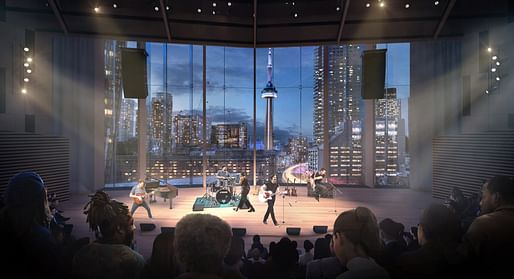
The center’s anchoring functions will be a 600-1000-seat main theater and a 300-seat acoustic hall. Both spaces have been designed to “support maximum configuration flexibility” through retractable seating and partitions, while the 300-seat acoustic hall is elevated to provide access to a green terrace.
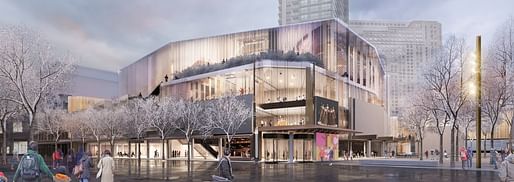
The design will be presented to Toronto City Council in the third quarter of 2023. Upon completion, the team hopes the building will become the first zero-carbon performing arts center in Canada.
News of the scheme comes weeks after Selldor, Diamond Schmitt, and Two Row revealed their expansion design for the Art Gallery of Ontario, while progress was also made on a revived Toronto Quayside master plan. Earlier in February, Toronto-based Montgomery Sisam revealed their design for a net-zero timber research center for the University of Toronto on the outskirts of the city.

Land Art Generator Initiative 2025 Fiji: Climate Resilience for Island Communities
Register/Submit by Mon, May 5, 2025

Ceramics of Italy Tile Competition
Register/Submit by Fri, Feb 14, 2025

Re:Form – New Life for Old Spaces
Register by Wed, Jan 22, 2025
Submit by Tue, Sep 2, 2025

Hospice - Home for Terminally Ill #4
Register by Wed, Jan 15, 2025
Submit by Mon, Jun 16, 2025
No Comments